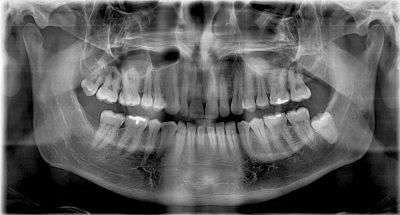- Homepage
- Minor surgical interventions
Minor surgical interventions
Extraction of wisdom teeth
Wisdom tooth removal can be one of the challenging interventions of minor oral surgery. If there is insufficient space for the eruption of the wisdom teeth, they can be partly or fully trapped within the jaw bone. They exert pressure on the surrounding tissues. The wisdom teeth can grow straight up or at an angle or down like other teeth. They can cause inflammation of the bones, bone cysts, resorption of roots and in neglected cases, they may cause trismus.
In such cases, the impacted wisdom teeth should be surgically removed. Sailer classified in 1996 the three degrees of difficulty of the wisdom tooth removal: S = simple, A = advanced, C=complex. Surgical removal of the wisdom teeth may result in numerous severe complications, therefore it is advisable to choose a specialist with substantial experience. Severe complications include fracture of the jaw bone, nerve injury resulting in permanent or temporary paralysis of the lower lips and/or tongue of the same side; injury of the second molar, tumors /ameloblastoma/. Even in simple cases of wisdom teeth extractions, certain complications can occur such as facial swelling, post-operative bleeding, pain, and the inflammation of surrounding tissues. At the Beautiful Teeth Clinic, only the less serious form of complications occur with a frequency well below the average.
Cystectomy
Cysts of jaws can be formed as a result of chronic inflammation, from the remaining embryonic cells on the root surfaces. They should be surgically removed as soon as possible. Particular attention should be paid to the cyst around the wisdom teeth, which is often formed around the crown of reversely positioned wisdom teeth/situs inversus /. The two types of bone cysts removals are cystectomy (complete removal, bone substitution, wound closure) and cystostomy (after removal of the cyst the wound is not closed and a slow bone formation fills the defect).
Apicectomy
Apicectomy is a surgical treatment for the removal of the infected tissues and the apical part of the root involving a gum flap preparation. After gaining direct access to the infected peri-apical tissues a few millimeters of the root tip needs to be removed to get good visual access to the tissues behind the root. This allows removal of any inflamed or infected tissue. Before apicectomy an anterograde root canal filling is necessary. During the operation, a retrograde root canal filling may be necessary.


